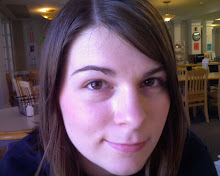I am simply too tired/lazy to write a summary, so here is my reaction to the book, which I just finished tonight!
Usually, I'm not a fan of fantasy. I finished this book in a few days, and if I hadn't had to work, probably would have read it in a single sitting. It's a good story and really draws you in. I rated it 3/5 stars mainly because I felt that some of the characters fall flat, and I wish that the church and all it entails were more deftly woven into the story. It comes up a few times throughout the book, but most of the information about the church and its possible connection to Dust is revealed within the last 50 pages, when Lyra finally finds her father, Lord Asriel. I do appreciate that Pullman doesn't spend pages and pages simply world-building and explaining things--the writing is almost always directly developing either the plot or characters, not really the world that hangs in the background. However, I do wish there was more detail about the church and how religion functions in this world (I suppose we're to assume that it's essentially like our own universe's version of Christianity?).
I suppose the next two books will go into far more detail about the church--it is a trilogy after all, so I can only judge it according to what I know so far...and I only know 1/3 of it. I saw the movie when it came out in theaters (which prompted me to look into the books), and was surprised while reading to find that I could recall almost scene-by-scene the progression of the story. Granted, I saw the movie quite some time ago, and it isn't exactly fresh in my mind, but nonetheless I was impressed that--from what I can remember--the movie seems to translate the book almost exactly. I'll have to watch the movie again and see how it compares now that I've read the book.
One thing that I think comes through in the book more than it did in the movie is the presumption that the audience is intelligent and composed of both children and adults. As a children's story, it was refreshing not to have things spelled out constantly, to have characters feel rage and lust and disappointment. Pullman manages to address a lot of interesting themes and creates characters who are human--they deceive, lie, love, hate, falter, and hope. The tension between Lyra and her parents and between her parents themselves are some of the most interesting character interactions in the novel (in my opinion). I'm definitely intrigued by the sick sort of sadomasochistic relationship between Lord Asriel and Mrs. Coulter. It's also interesting to see how Lyra reflects certain characteristics of her parents--who thus far appear to be the antagonists--while Lyra, the heroine, must use those very same qualities for good.
I should be careful about using words like good and evil, since at this point in the story, it seems that "good" and "evil" are largely undetermined. It seems clear-cut for a good chunk of the book, but by the end I think that dichotomy is disrupted.
Anyway, I'll wait to pass further judgment until I've read the next two books.
Subscribe to:
Post Comments (Atom)

No comments:
Post a Comment